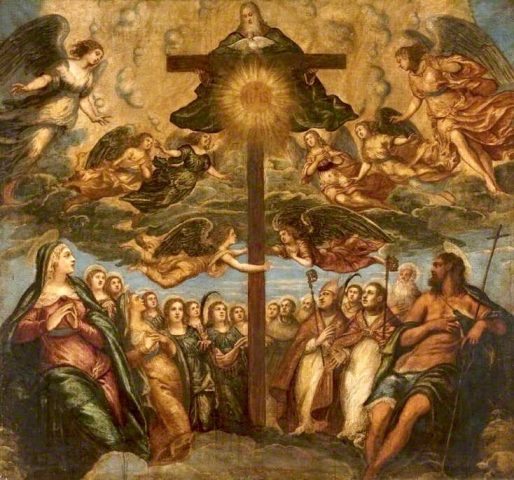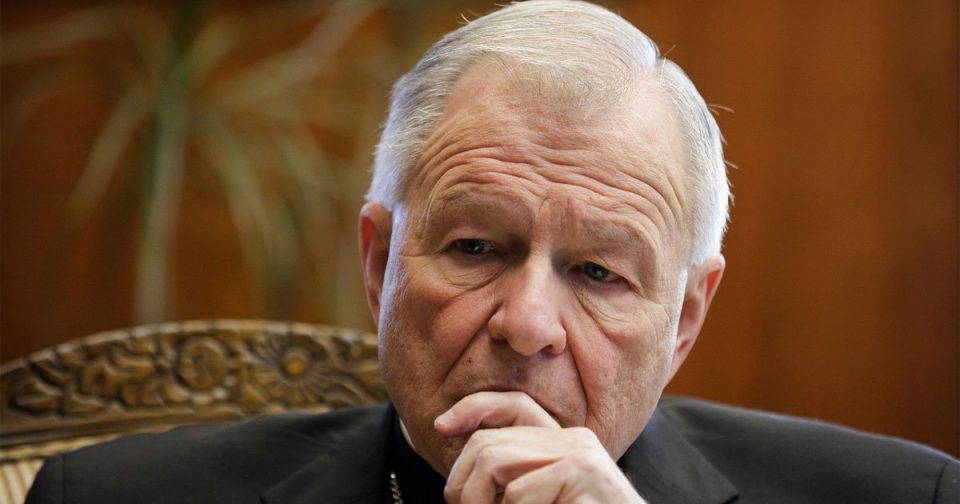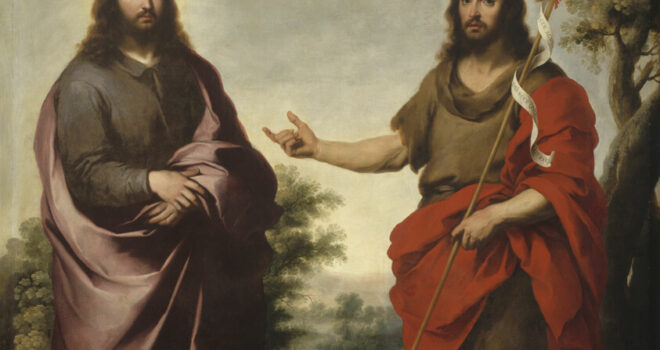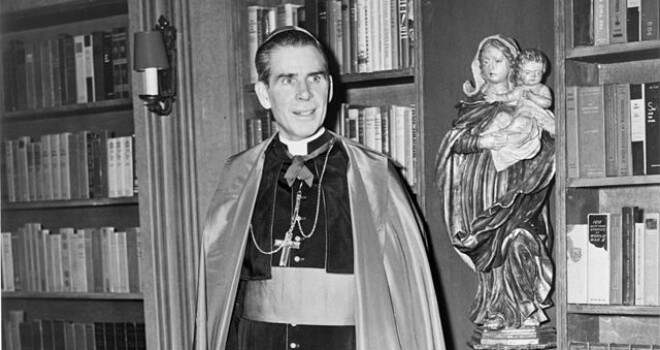They Will Hunger and Thirst No More, Bevil Bramwell

Sun May be Causing Global Warming—Seriously? by S. Michael Craven
May 13, 2019
#SexStrike: Hollywood Finally Embraces Abstinence, by Abby Johnson
May 13, 2019
Tintoretto, Jacopo, c.1518-1594; The Trinity Adored by Saints and Angels. Tintoretto, Jacopo; The Trinity Adored by Saints and Angels; Glasgow Museums; http://www.artuk.org/artworks/the-trinity-adored-by-saints-and-angels-86247
By Bevil Bramwell, OMI, Catholic Thing, May 12, 2019
The celebration of the wonder of the Resurrection must include the celebration of its stupendous effects. They are so profound that the Church just touches on one each Sunday in the Easter Season.
On the Fourth Sunday of Easter, the celebration is about God setting things up so that Christ continues to shepherd his people even while they are on earth.
First of all, God shone his “light” into the world. (First Reading) Jesus is known as the light of the Nations. God spoke his “voice” into this world. (Gospel) Jesus is known as the Incarnate Word. God’s aim was to transform the world to make it just, so that it and its peoples can stand before Him.
He offered “salvation,” a word derived from the word for healing. God’s salvation includes his offer to us of eternal life with Him. It includes our being filled with joy and the Holy Spirit. (First Reading)
This does not simply happen, however, as if we did not know this already from the Crucifixion. The Second Reading– from the Apocalypse – announces a time of great distress, a time of martyrdom, though the timeline is not clear.
Most importantly for us, there will be survivors. In fact, “a great multitude, which no one could count” will survive and because they remained faithful, they come to stand before the throne of God.
Their experience is glorious: “The one who sits on the throne will shelter them. They will not hunger or thirst anymore, nor will the sun or any heat strike them.” The point of this great history, one that leads to joy and peace with God, is to encourage us now. There is a brilliant future for those who develop their faith to be able to deal with being in distress and being tested.
Now the readings point out something more: “The Gentiles were delighted when they heard this and glorified the word of the Lord.” This is the positive side of things. There is, however, something that is not mentioned enough and that is the continuous and severe human opposition to what the Word of God means.
After all, we follow Christ crucified. There will be all kinds of efforts to deny the Word. Luke spoke about opposition and persecution. There is no suggestion that this will ever stop. The opposition develops anywhere, at any time.
Recently, Pope Emeritus Benedict XVI touched on one root cause of the scandals. In the 1960s, some people transformed Catholicism into a man-made religion. This was a particular way of distorting Catholicism. They changed the moral teaching to suit themselves. They modified the thinking about what the Church is to suit themselves.
Most of all, people let go of the fact that salvation is God’s prerogative and not man’s. It is the Tower of Babel story all over again and with terrible consequences. Some of which we are living through now – and there will be more.
Man’s idea of salvation involves instant satisfaction of all the appetites. This sums up the sixties for many Catholics. Mortal sins are not “mortal” anymore. But there was something else, too, that the readings bring out. In the First Reading, Paul tells the Jews– particularly their leaders– about the consequences of rejecting the word of God.
Come forward to the sixties: there was a collapse of religious leadership– something Benedict also alluded to. Leaders can do something the baptized do not have the power to do, namely guide and manage the priesthood.
The whole leadership is ordained into the leadership of Christ, the Good Shepherd: “He made us, we belong to him.” (Psalm) The Good Shepherd leads his people and ultimately “leads them to springs of life-giving water.” (Apocalypse)
The leadership of the Church is supposed to be doing this here on earth through moral teaching and the sacraments. Literally, the leadership makes the Good Shepherd present to the People of God. They are supposed to carry God’s teaching to man and not get caught up in the man-made religions around them.
Historically, however, they did not do a great job against the wave of man-made religion in the Sixties, nor did some of them deal very well with the wave of child and adult sexual abuse later on.
Now, there is yet another side to this talk about shepherding. People must want to be led, must know they need a leader. They need to grasp that the teaching comes from God. It is that teaching that is meaningful, not what some “scholar” – contradicting 2000 years of constant teaching claims is God’s real teaching, or what colleagues talk about around the water cooler.
There is a need for true humility here, a conscientious submission to God through recognition of Christ and his Church. In other words: “My sheep hear my voice; I know them, and they follow me.” Christ went further: “No one can take them out of my hand.”
Christ will never let go of us; but will we let go of Him?
*Image: The Trinity Adored by Saints and Angels by Jacopo Tintoretto, c. 1580 [Glasgow Museums, Scotland]




